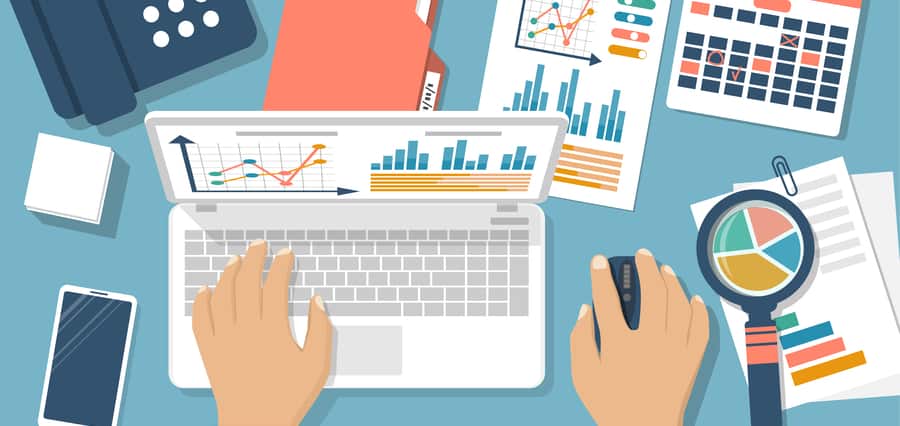Cash-Based Accounting vs. Accrual Based Accounting

Your business may make money, but is it actually profitable? Unless you maintain an accurate and current accounting system, there is no way you can really be sure. There are two basic accounting systems: cash-based and accrual-based. The main difference between accrual and cash-based accounting systems relates to the timing of revenue and expenses. Each approach has its advantages and disadvantages.
How you maintain accurate financial records plays a major role in ensuring that your company is truly profitable. Understanding the accounting process can help you make the right choice for your company.
Accrual versus Cash-Based Accounting Systems
Cash-based accounting recognizes actual revenue and expenses. Revenue is reported only after it has been received while expenses are only recorded when they have been paid. Cash-based accounting is more straightforward for the simple reason that tracking cash is easier. As a result, it is typically employed by small businesses, entrepreneurs and consumers. There’s a downside though. Cash-based accounting can overstate your company’s financial health, particularly if there are large reserves of cash on hand, but unpaid accounts payable that exceed the amount of cash available to cover them.
By contrast, the accrual accounting method focuses on revenue and expenses that are anticipated but have not yet been posted. Under the accrual method, revenue is recorded when a sale is made, even if the actual funds will only be received at a later date. Likewise, expenses are recorded as soon as a bill or invoice is received, regardless of the due date or the date that the invoice is actually paid.
The accrual accounting method is also more complicated to implement and maintain than the cash-based method, which might present a strain to a small business without an accountant or bookkeeper. Nonetheless, the accrual method presents a more consistent picture of earnings over time, which makes it the accounting system of choice for many companies.
Make More Income Than You Have in Expenses
Regardless of whether your company employs a cash-based or an accrual accounting system, your company must generate more income than expenses if you hope to remain in business. Ongoing shortfalls are a red flag that something is awry in your company’s revenue generation, revenue collection, expenditures or a combination of these factors.
Of course, revenue (and cash flow in particular) are frequently at a premium in a small business. At the same time, it is often necessary or advisable to make investments in equipment, supplies or added personnel. In such instances, It can make sense to take out a business loan.
However, it is one thing to take a loan to purchase an expensive piece of equipment that will allow your company to operate more efficiently. It is quite another to fall into a continuous cycle of borrowing and repayments.
Why You Shouldn’t Put Off Your Accounting to the Last Minute
Especially for a small business where everyone wears multiple hats, it’s tempting to put off generating and maintaining financial statements. However, delaying the task of accounting can have adverse effects on your company’s bottom line. Failure to maintain accurate accounting records can leave you unable to gauge your company’s actual financial health. Without an accurate financial picture for your company it is simply impossible to know whether your costs are excessive or whether your financial resources permit expansion.
Nonetheless, for many small businesses, accounting is viewed as a chore that distracts from the actual products or services that the business provides. However, your company’s revenues and expenses won’t record themselves. At some point, without regular attention, the task of maintaining your company’s books will become insurmountable and you’ll have little choice but to hire a professional — most likely a certified public accountant (CPA) — to clean up the mess. This is a cost you could likely do without.
On the other hand, keeping your company’s books up-to-date makes accounting much less of a chore. The key is to take care of posting revenues, expenses and other financial records immediately, while they are fresh in your mind. Accounting software such as Quickbooks or Freshbooks perform much of the heavy lifting number-crunching and will help you maintain a running tally. However, poorly organized records won’t be magically transformed into pristine financial statements by plugging them into an accounting software program!
That said, a small business can produce useful and accurate financial statements with a relatively simple classification system. Useful categories for a small business accounting ledger include accounts payable, accounts receivable, employee payroll, employee benefits, taxes, bank statements, permits and licenses, equipment and supplies, liability coverage and overhead (such as rent, equipment maintenance and supplies).
Maintaining a Positive Cash Flow
Establishing and maintaining a current and accurate accounting system is vital to the financial health of your company. There are two generally recognized accounting systems. Cash-based systems are easier to implement and maintain, but can overstate the financial health of a company that is flush with cash but saddled with numerous financial obligations. The accrual method is more complex, but produces more consistent reports over time.
Each method has advantages and drawbacks and the right choice depends on your company’s specific circumstances. What’s important is to maintain accurate financial records in order to gauge whether your company is actually turning a profit.
If your company is experiencing a short term cash flow issue or you need additional revenue for a major purchase, a business loan from OnDeck can fill the gap. Check out our success stories and give us a call to learn how we can provide the revenue you need.
Find the right funding for your business.
Term loans up to $250K. Lines of credit up to $100K.
No obligations and no hard credit pulls.




